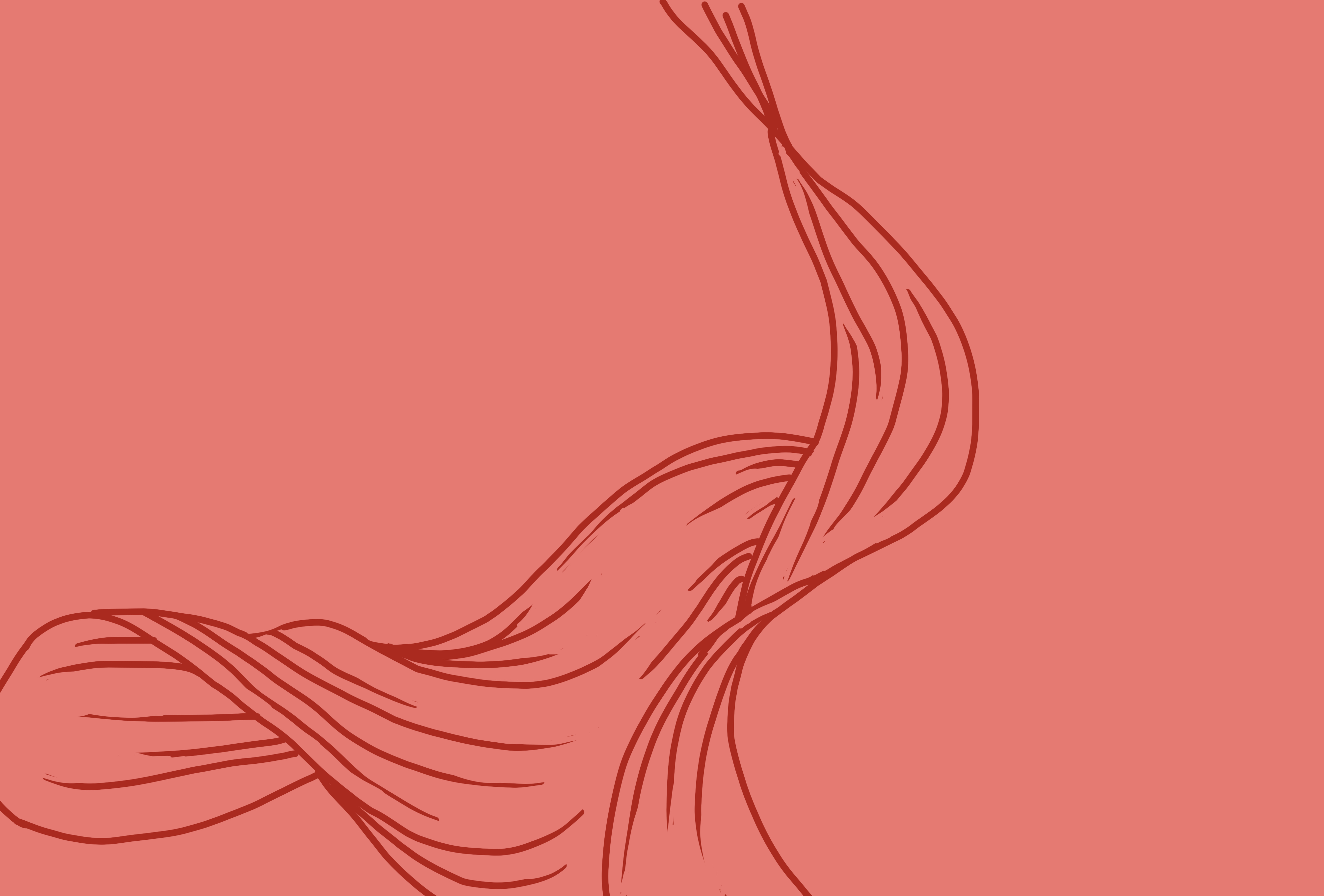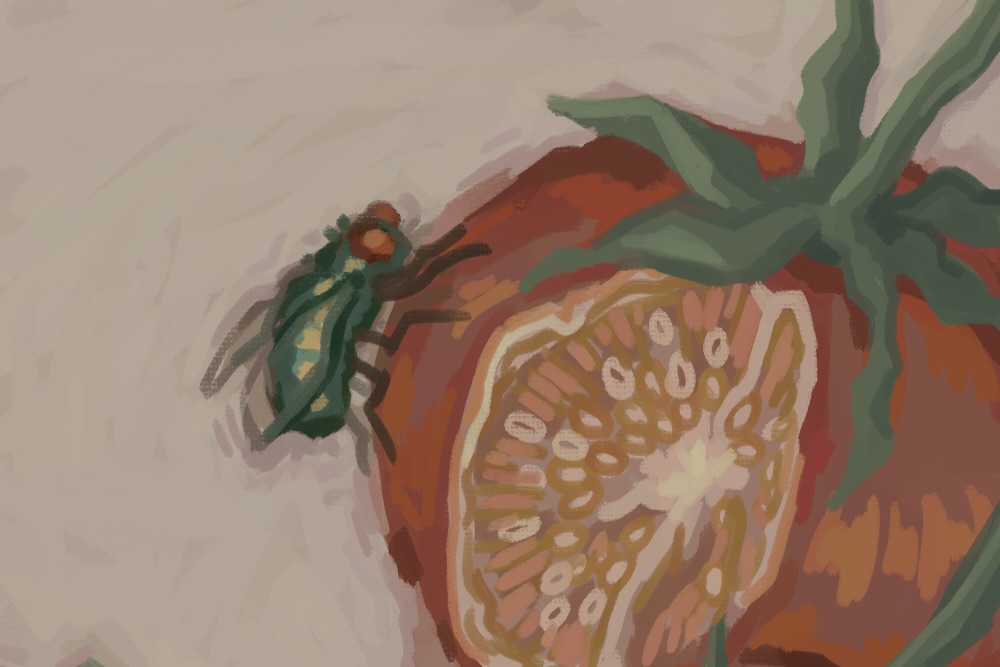Complaints from the Chinese Boudoir
“At daybreak, I pace idly in the courtyard with a silk fan. Cold autumn is at hand, and I know the fan will soon be discarded. A crow flits by and secures its position on the palace roof. The croaking bird is no match for my complexion, smooth as jade. Yet why is it able to return bathed in the sunlight from Zhao Yang Palace, from my lord’s gilded side? He slumbers with his new concubine, while I am exiled to the most secluded corner of the harem – already cast aside.”[1]
Ban Jieyu, a concubine of the Han Dynasty who fell out of favour after being embroiled in a vicious harem power struggle with sisters Zhao Fei Yan and Zhao He De. Here, she is an arresting picture of boudoir sorrow. The real Ban Jieyu, however, is lost. In the Chinese poetic canon, she survives through a tradition of literary allusions which frequently evoke her as the paradigm of a jilted woman.
The performer is Wang Changling, a Tang Dynasty poet. Far from the first man to affect the persona of a grieving woman in a boudoir complaint, he belonged to a group of powerful male literati in the Tang Imperial Court. Together, they penned more than five hundred boudoir complaints, many of which have been preserved to this today. Under the brushstrokes of these men, women mourn both in their private boudoir and in the harem: lovelorn concubines grieve their imprisonment or an emperor’s disfavour, and newly-married girls weep over their estrangement from a merchant husband.
According to Lu Xun: “The most long standing, eternal and pervasive art form in Chinese history is that of men disguising themselves as women.” What scholars have been struggling to explain for centuries is why.
玉阶生白露,
夜久侵罗袜。
Frost forms upon the jade stairwell
the dampness of the night pervades my silken socks2
The literal meaning of ‘boudoir’ in French is ‘pouting room’ or ‘sulking room’, and the women in these complaints seem to be solely capable of experiencing this singular emotion, frozen permanently in one frame. The problematic ‘male gaze’ supplies an uncomplicated solution to this portrayal of unwaveringly mournful women.
却下水晶帘,
玲珑望秋月。
Only to let down the crystal curtain,
And gaze at the autumn moon through the veil.[3]
Scholarship on boudoir complaints tends to focus on the power imbalance between the educated male literati, and the women of the boudoir, as Robertson notes.[4] The scale is tilted between the artist and his muse, between the magistrates, politicians, and housewives. Perhap we should denounce the male fascination with the boudoir and the vulnerability of a woman’s body. Perhaps this voyeuristic male spectatorship sexualised, idealised and repressed women into a submissive poetic object. Or maybe the appeal of a feminine voice is more complicated than that, and potentially even sympathetic.
淳熙己亥,自湖北漕移湖南 ,同官王正之置酒小山亭 ,为赋。
In the Jihai year of Chunxi I am to travel from Hubei to Hunan by water, on a pavilion on a hill in the company of Officer Wang Zhengzhi I this compose [5]
Demoted to the position of the secondary ambassador of transport of Hunan Province, Xin Qiji was given a consolatory send-off by his friends. He envisioned himself as a palace woman in the solitude of her boudoir, lamenting the remnant of fleeting spring. He felt a wave of sympathy for women like Ban Jieyu and was similarly discontented with his own fate. He wanted nothing more than to be at the epicentre of the Imperial Court, to command armies, and to dictate law and policy. But instead, he was an exile.
君恩如水向东流,得宠忧移失宠愁。
The favour of the emperor is akin to the rapid
stream rushing Eastward,
In gaining favour I mourn its inevitable loss.[6]
Xin Qiji did not merely gaze at and judge women. Instead, by assuming a feminine persona and evoking historical examples of jilted concubines, he and other male poets transformed themselves into the disenfranchised objects that they themselves disempowered with the invasive male gaze. Under the guise of love poetry, boudoir complaints harbour a compelling agenda – these male poets are not writing about women, or truly rendering themselves effeminate. Within the boudoir allegory, Xin Qiji was writing about his own unjust plight, bemoaning his failures at the game of political intrigue. His political rivals are assigned the roles of other vying concubines, who beguile the emperor with their beauty and wiles. After all, what is the difference between a spurned wife and an exiled courier, both being incapable of winning over the heart of an obstinate ruler? The shared emotion is that of inexorable sorrow and repressed resentment, the essential ingredients of a complaint.
The poetic force of these complaints does not, however, stop at sympathy. Through their art, men assail the imperial power behind all grievances of the boudoir. While wandering around the Terrace of the Bronze Swallow, poet Wang Jian hears the telltale strains of a revel, he parts the beaded curtains to reveal the phantoms of dancing concubines and palace maidens.“Why should the living suffer for the ghosts of the past?” he asks, as “the cycle of seasons have not ceased after the old emperor’s passing, and the abandoned palace is evergreen.” As a member of the Song Dynasty literati remarks in surprise, “Tang poetry reveals much and hides nothing, and even boldly exposes affairs of the harem which any outsider would be condemned to even utter a single word of.”[9] The boudoir persona of men thus transcends allegory to emerge as an evocative weapon of socio-political expression.
History, however, records another dynamic between an emperor and his subject. During the Spring and Autumn period, a lord of Chu was amusing himself, drifting down the river on a raft, when an oarsman from Yue sang to him in a tongue he did not understand:
蒙羞被好兮不訾诟耻,心几烦而不绝兮得知王子。
山有木兮木有枝,心说君兮君不知
My heart pounds to make acquaintance with a prince. There are trees in the mountains and branches on the tree, Oh but you don’t how much my heart delights for thee. [10]
Song of the Yue was one of the first recorded love poems in Chinese history, composed by a male peasant to the foreign prince. It was ancient China’s version of homoerotic verse – direct, extemporaneous, and exuberant.
Qu Yuan, a century later, created a boudoir voice a world apart from the liberating Song of the Yue. He plunged himself in the Miluo River in 269 BC after penning Encountering Sorrows. His native state of Chu was falling apart before his eyes. The King of Chu, a master to whom Qu Yuan had sworn his unequivocal devotion, shunned his counsel. The beloved poet was mourned by peasants who wrapped up rice and meat into bamboo parcels and fed them to the flesh-eating fish in the Miluo River, praying that they would feed on these and keep his body intact.
众女嫉余之娥眉兮,
谣诼谓余以善淫。
All your ladies at court were jealous of my delicate beauty; They chattered spitefully, saying I loved wantonness.[11]
The image of Qu Yuan as the prototype of patriotism and altruism became deeply ingrained in the modern Chinese consciousness. But, simultaneously, a more marginalised, scandalous narrative continues to fascinate: the exemplary statesman was nothing more than a male favourite of the King. Whatever political allegory there may be in Encountering Sorrows commingles with the vulnerability of a romantic complaint, and it is near impossible to discern where the boudoir performance ends and truth begins.
曰黄昏以为期兮,羌中道而改路。
余既不难夫离别兮,伤灵脩之化。
There once was a time at dusk when he promised himself to me; But then he repented and was of another mind.
I do not care about this separation, But it grieves me to find the Fair Lord so inconstant.[12]
Qu Yuan was the first influential literati to write with a woman’s voice. His poetic legacy passed down from the Warring States period to almost a millennium after his time, imitated by poets of Tang and Song Dynasties, and beyond. He created a specific artistic standard for Chinese poetry: the reticence of a boudoir tragedy. Unlike in Greek tragedy, there is no anagnorisis or cathartic release in this Chinese art. Instead, its pinnacle springs from the withdrawn expression of sorrow and affliction.
In contrast to the Chu King’s cruelty to Qu Yuan, the prince responded amiably, even suggestively, to the boatman. He first embraced the peasant, and then wrapped around him the embroidered quilts from his own bed. Between the uninhibited joy in Song of the Yue and the feminine complaint in Encountering Sorrows, the homoerotic intrigue persists: if indeed Qu Yuan was a jilted male favourite in an age where men freely professed love to other men, why would he willingly submit to the constraints of the boudoir?
诗可以兴,可以观,可以群,可以怨
Poetry can entertain, can be admired, can possess social functions, and it can be in the form of a complaint.[13]
Perhaps the answer lies elsewhere. By the Tang Dynasty, the era where boudoir complaints were the most prevalent, the practice amongst royals of harbouring male favourites had become illicit. Emperor Tai Zong ruled with the fundamental teachings of Confucianism and other philosophical schools of thought. These principles became the official pillar of governance, and for the first time since the Han Dynasty, an emphasis was placed on educating literati well-versed in poetic arts and the Confucian doctrine.
In The Analects, Confucius comments that poetry should provide “amusement but not decadence, sorrow but not deep grief, and resentment but not wrath.” For centuries, this artistic principle of restraint has guided male poets as they air out their sorrows through complaints.
All forms of mournful Chinese art display Confucius’ aesthetic ideal to a certain degree, including music. Boudoir complaints are sometimes accompanied by the guqin, a seven-stringed zither. The sound of the guqin is muted and played with as little movement as possible. A player presses on the strings tightly after a note and shifts across the instrument, altering the note as he goes along, but extending it as long as possible. It produces a lingering, airy quality. Real music is believed to lie in the notes beyond the strings, or in the moments preceding absolute silence.
重帘未卷影沉沉。
倚楼无语理瑶琴。
I see the final days of spring entrapped in the narrow courtyard,
the heavy curtain is not rolled up, and heavier shadows flit across my boudoir
I lean against the tower pavilion, and in silence play with my seven-stringed zither.[14]
Just as silence is the key to such music, restraint and constriction is the primary avenue of creative expression. Men sought the inhibited, reticent space of the boudoir not solely because of their wish to write about the women themselves, but also the artistry of feminine reticence, which in turn aligned with their own philosophical and poetic ideal. In the boudoir, there is no direct articulation of sorrow, or violent raging. Instead, there is complaint without ever quickening to fury, discontent without seeking active rebellion, and emotional release without culmination, all giving rise to a silent, curtailed outcry. ∎
[1] Wang Changling. Five Autumn Poems of Changxin. Part 3. ed. Yin Cao. (Beijing, CN: Zhong Guo Hua Bao Chu Ban She, 2011).
[2] Li Bai. Yu Jie Yuan. ed. Yin Cao. (Beijing, CN: Zhong Guo Hua Bao Chu Ban She, 2011).
[3] Ibid.
[4] Robertson, Maureen. “Voicing the Feminine: Constructions of the Gendered Subject in Lyric Poetry by Women of Medieval and Late Imperial China.” Late Imperial China, Vol. 3, no. 1. (Baltimore, MD: Johns Hopkins University Press, June, 1992). p. 63–110.
[5] Xin Qiji. “Lyrics to the Melody of Fishing with Bare Hands” trans. Betty Tseng. Jiaxuan Chang Duan Ju: 12 Juan. (Shanghai, CN: Shanghai Shu Hua She, 1974).
[6] Li Shangyin. “Gong Ci” Quang Tang Shi. ed. Yin Cao. (Beijing, CN: Zhou Guo Hua Bao Chu Ban She, 2011).
[8] Wang Jian. “Tong Que Tai” Xin Tang Shu Yi Wen Zhi. ed. Xiu Ouyang. (Hunan, CN: Yue Lu Shu She, 2009).
[9] Hong Mai. Rong Zhai Sui Bi (Beijing, CN: Shang Wu Yin Shu Guan, 2019).
[10] Liu Xiang. “Song of the Yue” Chu Ci. Beijing, CN: Shang Wu Yin Shu Guan, 2018)
[11] Qu Yuan. “Encountering Sorrows” trans. David Hawkes. Chu Ci. (Beijing, Shang Wu Yin Shu Guan, 2018).
[12] Ibid.
[13] Confucius. “Yang Huo” The Analects. (Xian, CH: Xi Bei Da Xue Chu Ban She, 2016).
[14] Li Qingzhao. “Lyric to the melody of washing garments by a running creek” Shu Yu Ci. (Jinan, CH: Qi Lu Shu She, 2009).
Words by Zhao Changxian. Art by Faye Song.







